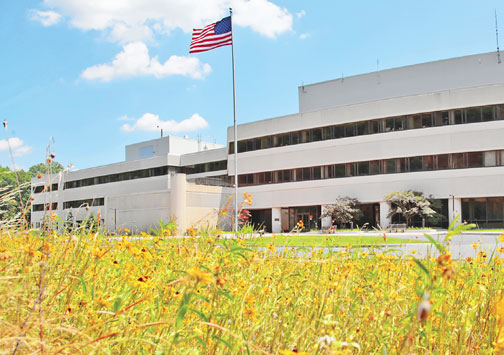The Cold Wind of Sequestration
Even as winter loosens its grip, Princeton is bracing for the chilling effects of sequestration—the major across-the-board cuts, chiefly affecting federal discretionary spending, that took effect March 1. A device designed to force much-needed agreement on federal deficit reduction measures has now become a bludgeon, subjecting both civilian and defense programs to indiscriminate reductions of roughly one trillion dollars over the next 10 years. Not only does this approach unfairly target areas of spending that constitute only a third or so of the federal budget, it also fails to differentiate between programs we can reasonably curtail or eliminate and those that are essential to our nation’s future. Among the latter are investments in higher education and fundamental research. I say this not because I lead a university, but because these investments immeasurably strengthened America’s social and economic fabric in the second half of the 20th century and, to a large extent, will determine whether we continue to prosper under the far more competitive conditions of the 21st.
Hunter Rawlings *70, president of the Association of American Universities, put it well when he testified on Capitol Hill in February. “These investments produce the educated people and the ideas that lead to new products, new businesses, and entire new industries, as well as to the jobs that go with them. . . . More than half of economic growth since World War II has resulted from technological advances, almost none of which would have been possible without federally funded innovations.” In other words, there are many paths to deficit reduction, but hobbling a major engine of economic progress is not one of them.
I wish I could say that Princeton’s private status and robust endowment will insulate us from sequestration’s consequences, to say nothing of what The New York Times has aptly described as a “perpetual cycle of deadline-driven shortterm fiscal policy” in Washington. But though we stand on firmer ground than our nation’s public research universities, already reeling from reductions in state support, we are not immune to the 5.1 percent cut in civilian discretionary spending that took effect March 1, or even the cut in defense spending, given the research support we receive from the Department of Defense. As I write, the precise impact of sequestration on our University community remains uncertain, and bullets dodged this fiscal year or next may well be unavoidable later. Suffice it to say that our exposure is substantial. Even in the realm of undergraduate financial aid, where Princeton is far less dependent on federal funds than other colleges and universities, our students are supported by $4.7 million in Pell, Supplemental Educational Opportunity, and Work Study Grants.
Sponsored research is another story, however, with federal funds accounting for 84 percent of the grant expenditures we received last year—all told, $161.5 million from major players such as the National Science Foundation and National Institutes of Health and small but indispensible sources of support such as the National Endowment for the Humanities. Funded activities are as varied as the scholarly interests of our faculty and students. Last year, for example, 1,007 projects were sustained in whole or in part by federal funds—everything from the acceleration of chemical reactions on which major pharmaceutical discoveries are predicated, to the study of the intricate workings of the brain, to the publication of the papers of Thomas Jefferson, to the acquisition of Near Eastern languages by both undergraduates and graduate students at a time when this competency is critical to the effective pursuit of international relations. Still another component of federal support takes the form of pre- and post-doctoral training grants, a vital means of preparing young scientists and engineers to assume a leadership role in their respective fields.
The single largest enterprise sustained by federal dollars— representing an additional $81.5 million—is the Department of Energy-sponsored and University-managed Princeton Plasma Physics Laboratory. Its contributions to fusion research and the quest for clean, safe, and abundant energy are as far-reaching as they are important, and the further erosion of its funding base threatens not only jobs and recent progress in this field but also a unique body of skills and knowledge built up over many decades. I am grateful to the laboratory’s leaders and federal officials for doing their utmost to mitigate the effects of sequestration and other budgetary stringencies.
Any reduction in federal funding, including possible “clawbacks” from existing grants, will be widely felt, at an individual, departmental, and institutional level. Multi-year research projects cannot be conducted in fits and starts or even scaled up and down without compromising their integrity and disrupting the careers of those engaged in them; indeed, the pursuit of new knowledge requires precisely the kind of stable, predictable funding environment that hyperpartisanship precludes. My colleagues and I are making every effort to persuade our elected representatives to safeguard the crucial investments I have described, but the current climate in Washington—in which short-term political advantage is frequently pursued at the expense of long-term national wellbeing—merits the concern of all Americans.














No responses yet